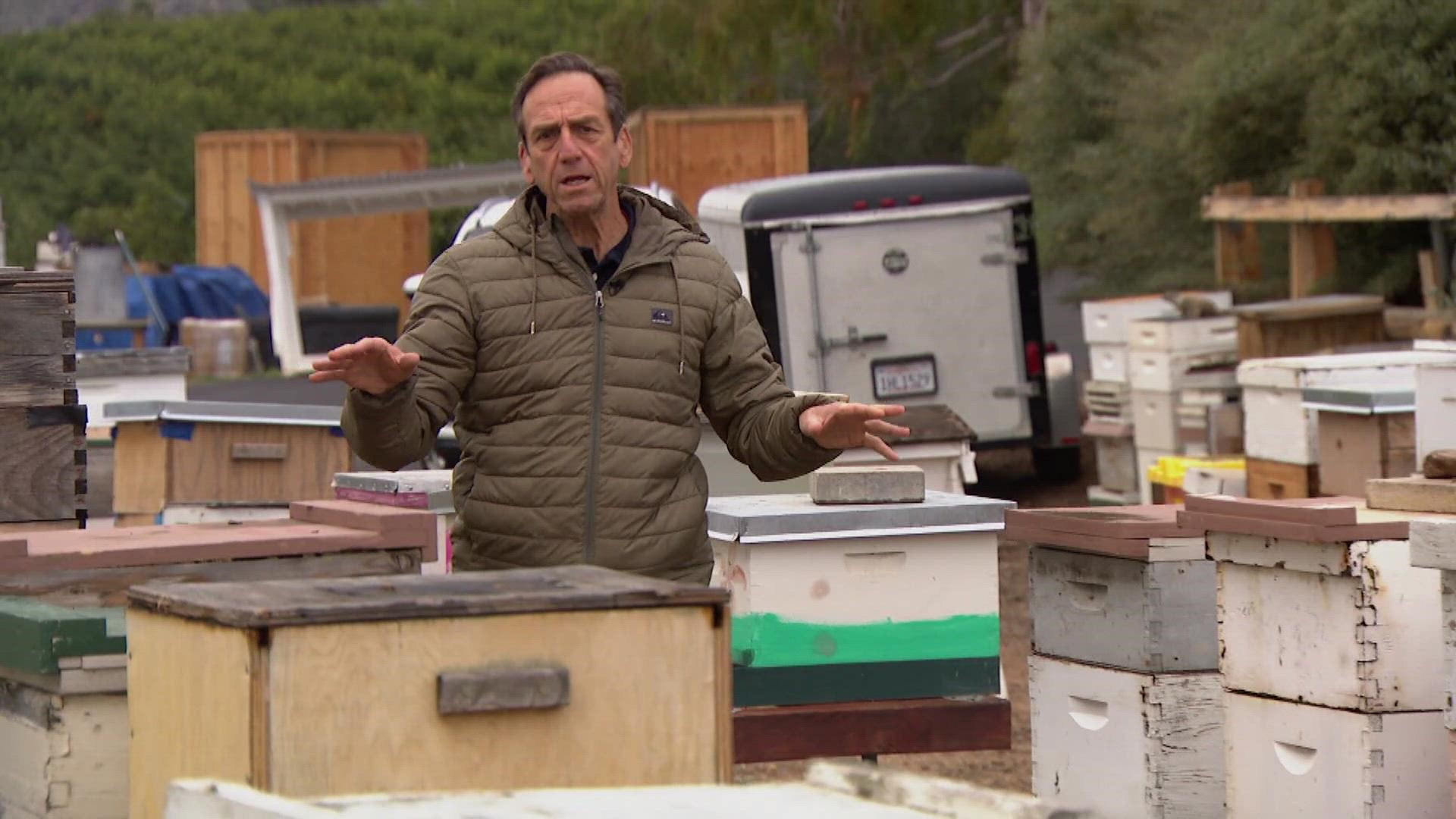SAN DIEGO — I went out to Bee Leaf Bee Sanctuary where they had over 100 colonies, these are essential to our survival as well as to agriculture.
Recent hurricanes that swept through Florida wiped out tens of thousands of hives as well as took away the food that colonies need to survive.
By late September, beekeepers on the East Coast had moved their hives to the mild weather in Florida to take advantage of the Brazilian pepper tree bloom... that's when Hurricane Ian hit.
Travis Wolfe is the owner of Bee Leaf and says Florida bees got hit with a one-two punch.
"Most of the northern states had already delivered their bees to the southern states in order to take advantage of the longer beekeeping season and plants that were still blooming. Not only did the bees get beat up, but then their food got beat up at the same time. So, it was a double-edged problem for the upcoming pollination season."
Jeremy Ham is one of those Florida beekeepers trying to save his bees with supplemental nectar.
"Some of these bees have gotten three shots of feed. So, you're talking 36 pounds of supplemental feed already. You go back after they suck the feed down and it looks like were never fed at all."
Supplying beekeepers were Maan Lake Bee and Ag Supply and they were producing sugar water nectar as fast as they could.
To offset the costs Federal aid was available. Other non-profits were also chipping in.
"We have donated food pantries for humans, supplies to animal shelters, and now we're donating this bee pollen substitute to help these farmers," said Casey Paholski with Greater Good Charities.
For the bees that did survive, the next move for pollen and nectar is here to California for the almond crop which has been shrinking because of the Mega Drought.
"If the drought takes out the almond crop in California, beekeeping is going to be in trouble."
Andrew Wagner is from Mann Lake Bee and Ag Supply. Wagner says bees have become dependent on humans for survival.
"If every beekeeper released their bees into the wild, we estimate that it would be two-to-three years before the bees would just collapse."
The use of uncontrolled pesticides, encroachment through development and invasive pests are the reason... and here in San Diego Travis Wolfe.
"We've created a mutual dependency on bees and their dependence on us. That said, I'm a firm believer that if we were to neglect all the Honeybees in the world, the bees will find a way to survive."
By making the right choices, even small ones each of us can help.
Adds Wolfe, "The biggest way we can do that is by planting a tree. You don't have to get a big, huge tree."
The other thing you can do to help is to stop spraying pesticides on flowering plants.
"They are very effective, the problem is that the bees will intercept that and take it back to the colony and ultimately poison themselves."
So by doing a few small things around our homes we can help the Bees so they can help us.

